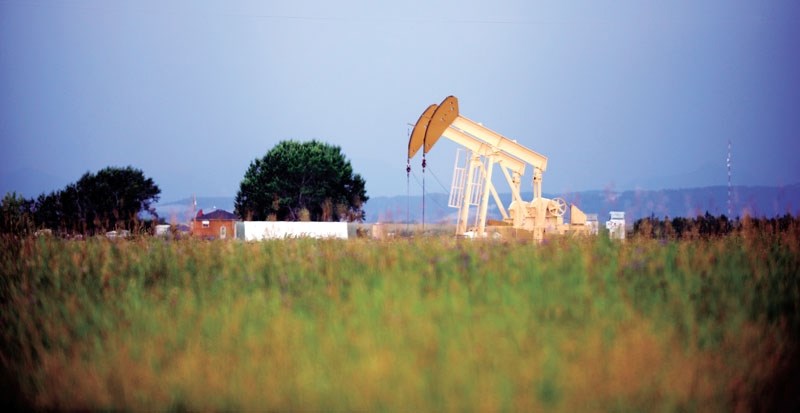Between inconsistent regulatory regulations, changes in the global economy and tanked oil prices, businesses involved in the energy sector have been hit by a “perfect storm” that is making it tough to survive, according to one Cochrane-based consultant.
Lee Long, who owns CS Services, an oilfield services company, said his business is “pretty much shutdown” at the moment though he is still working.
“Working and trying to get paid,” said Long, who described himself as a 40-year veteran of the oil patch.
Receiving payment is the biggest challenge right now as businesses struggle with the low cost of oil and the high costs of doing business, according to Long, who said he has only been paid for one of the past four months.
While many are struggling, some, like IronCreek Oil Field Rentals in Cochrane, have managed to weather the storm.
Scott Kerr, whose company has done environmental cutting management, cutting disposal and fire suppression over the past four years, said times have been tough but he is staying afloat.
“ It's vicious out there … but because we provide a service and are very good at what we do, we've maintained our work and picked up new work,” said Kerr. "It gets to be a bit of a price war. Our prices are down so margins are definitely slimmer, if any."
Kerr said part of IronCreek’s success has been running a lean business model.
"It's been stressful, it's been a challenge, but we don't have a lot of debt so that has put us in a great position,” he said.
But IronCreek might be one of the lucky ones, Long said while the industry is at one of its lowest points in years the storm has been brewing for quite awhile.
“The last several years have been very tough,” he said.
Even before oil hit rock bottom in 2015 and before the NDP came to power bringing with it new business and carbon taxes, Long said the industry in Alberta had already been suffering from poor governance.
“Our problems are not all NDP, they are not helping us but these problems started a long time ago,” said Long.
He pointed to past governments’ tendency over the past 15 years to announce regulatory changes that would drive companies to spend millions to comply only to have the government back track. The high cost of navigating the regulatory system and the uncertainty of that system in Alberta has also served to drive off investment, he said.
Long added that the recent increases to business taxes, the addition of the carbon tax and a “known anti-oilsands activist being appointed to the commission on oilsands development” have only exacerbated the problems.
“We need to take a serious look at supporting our companies,” said Long.
A key aspect to that is to take a serious look at the long-term affects of policy and stop making political decisions to satisfy a minority of small interest groups that will never be satisfied, he said.
Real diversification would also be beneficial, but Long said that means looking at a gamut of industries and not just focusing on technology. Unfortunately, he believes there are political barriers to that idea. The mining industry for example has a lot of potential in Alberta but is not politically expedient right now, he said.
Long said too much money of late is invested into stopping projects instead of trying to find solutions and truly diversify. He added that is disappointing considering people forget or ignore that Alberta has always had high environmental standards and is a low overall global producer of carbon emissions.
“Business is not necessarily evil,” he said.
Since May 2015 the province reports those collecting Employment Benefits in the province skyrocketed from 49,700 to 77,810. Long said he expects when you factor in those who are unemployed and not collecting benefits and those who are underemployed that the number is likely four times higher.
“It’s going to get worse before it gets better,” he said.




